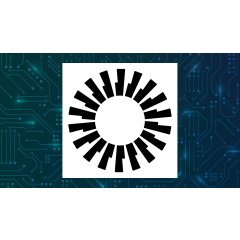
An international collaboration led by researchers at UMC Utrecht has successfully developed two first-in-class antibodies that inhibit inflammation associated with autoimmune diseases. These antibodies target the high-affinity IgG receptor FcγRI, offering new therapeutic options for conditions such as rheumatoid arthritis (RA), systemic lupus erythematosus (SLE), and immune thrombocytopenia (ITP). The findings were published in the journal Nature Communications.
FcγRI, also known as CD64, is a receptor located on myeloid cells that binds to the Fc region of IgG antibodies. Under normal circumstances, this receptor plays a critical role in the immune response by initiating processes like phagocytosis and cytokine production. In autoimmune diseases, however, the immune system erroneously targets the body’s own tissues, leading to the formation of autoantibodies that activate FcγRI unnecessarily. This results in chronic inflammation and tissue damage.
Innovative Antibody Development
The study, led by Prof. Jeanette Leusen, Ph.D., from the Antibody Therapy research group at the Center for Translational Immunology, involved extensive collaboration with experts from institutions including Kiel University in Germany, Leiden University Medical Center, Utrecht University, and Friedrich-Alexander University Erlangen-Nürnberg.
For over three decades, researchers have struggled to create antibodies that target the IgG-binding domain of CD64 due to its exceptionally high affinity for IgG. In a breakthrough approach, the team utilized the UMAB unique immunization method alongside novel phage display antibody libraries to sidestep this challenge. They successfully isolated two unique Fc-silent antibodies, designated C01 and C04, which bind exclusively to FcγRI via their Fab domains.
High Affinity and Effective Inhibition
Quantitative binding studies revealed that both antibodies exhibit a greater affinity for FcγRI than human IgG, allowing for the efficient displacement of IgG or pathogenic immune complexes by up to 60% and blocking binding by up to 90%. Notably, neither C01 nor C04 activated FcγRI, a significant advantage over previous anti-FcγRI antibodies that risked triggering receptor clustering and cytokine release.
In preclinical assessments, these antibodies demonstrated effectiveness in various models. An in vitro model for immune thrombocytopenia showed that C01 and C04 inhibited opsonized platelets from binding to immune cells derived from ITP patients. In an in vivo model for ITP, the antibodies significantly reduced IgG-dependent platelet depletion. Additionally, tests in an in vitro rheumatoid arthritis model showed that they effectively inhibited the binding of patient-derived autoantibody-immune complexes to monocytes, macrophages, and neutrophils from healthy donors.
The research underscores the potential of Fab-mediated inhibition of FcγRI as a viable strategy for treating autoimmune diseases characterized by IgG-autoantibody complexes. By preventing immune complex-driven activation without triggering the receptor, C01 and C04 could pave the way for targeted, inflammation-sparing immunotherapy.
“We believe we have found the needle in the haystack after searching for over a decade, thanks to a true team effort,” stated Jeanette Leusen, the principal investigator of the study. “Each research partner contributed a critical piece, from antibody discovery and structure determination to patient sample testing and preclinical models. Only together could we bring this to fruition.”
Next steps involve enhancing the blocking and displacement capabilities of the antibodies through affinity maturation and humanization of these initially mouse-derived antibodies to reduce immunogenicity. The newly developed antibodies have already been patented by Utrecht Holdings, with ongoing efforts to secure partners for clinical development. This collaboration marks a significant advancement in the quest for effective treatments for autoimmune diseases.





